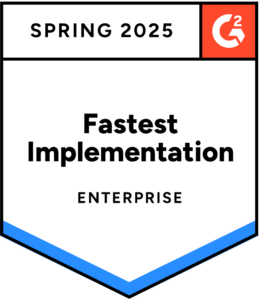From Number Crunchers to Storytellers: AI Skills for Finance & Accounting Professionals
Blog post
Share
In today’s corporate world, it feels like teams are looking for ways to implement AI into just about every function of the business. But as leaders know, the risks and use cases look different for each department.
- Making sure your team isn’t just enabled with AI tools, but also trained for proper usage.
- Ensuring they understand the risk of using open AI tools, like ChatGPT, compared to secure, closed models, like those offered by software developers like Trintech.
- Providing proper training on prompt writing.
These are basic AI skills any user should understand, but for finance and accounting teams, training for AI usage looks different.
AI and the Finance & Accounting Function
Tasked with driving more value to the business, accountants are in a prime position to develop and hone skills needed to succeed. Already adept at accuracy, making data-driven decisions, and planning scenarios, adding the benefits of technology to your toolkit can set accountants up as influential leaders to the business. The newer generations of accountants are tired of pouring their high-level knowledge and skills into manual efforts using outdated tools like Excel spreadsheets. Piloting AI tools and expanding the use of data and automation tools are areas ripe for those looking to grow further into the new world of accounting.
As you look to upskill your accounting team’s technological savvy to help them adapt to the changing demands of the profession, download Trintech’s white paper, “Upskill Your Accounting Team for the Era of AI.” It offers six key areas for upskilling accounting teams for AI usage. Here are a few of the areas discussed:
Forecasting, planning and modeling
Gathering clean data is essential for proper AI usage, but it’s what you DO with the data that matters. Compiling the numbers is no longer enough for the Office of Finance. The role of the CFO is evolving into Chief Storyteller as the finance team is being tasked with understanding and communicating the why behind the metrics.
CFOs can leverage data storytelling to transform complex financial data into compelling narratives that drive strategic decision-making. Learning to use tools like PowerBI, Tableau, and other analytics platforms can help accountants slice data and present it in a way that can tell a compelling story of how the business is performing, what changes need to be made, and different forecasts and models based on goals. Combining data with visuals elevates your expertise as a business partner. And by connecting these tools to your financial data, you can create a secure and centralized environment with dashboards for the data that builds your story.
Root cause analysis
Another area of possible upskilling and focus is root cause analysis (RCA), used to identify problems and develop solutions. Traditionally a function of business management, finance often weighs in when consulting on cost. However, when working towards becoming a profitable department themselves, there are many use cases for an aspiring finance leader to learn how to use root cause analysis in their own department.
Learning how to use root cause analysis models can tackle things like excessively long close times, failed audits, intercompany issues, and lack of visibility. Taking on the task of analyzing the data, creating a cause-and-effect analysis, and possible solutions can lead to finding strategies that can save your company hundreds of thousands of dollars each year.
Conclusion
As teams are increasingly using technology, especially AI, there are several opportunities to upskill finance and accounting teams. Download our white paper, which covers six specific areas of additional training for AI, plus eight use cases for leveraging AI in your financial close to cut time, reduce costs, and mitigate risks.
Written By: Lindsay Rose






